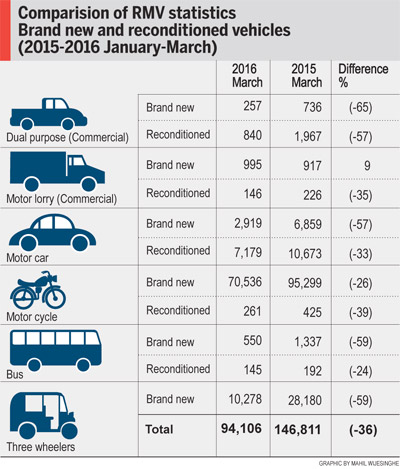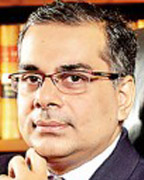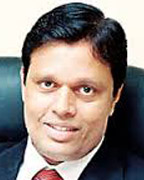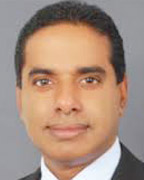Clear-cut tax policy, a must for vehicle imports
by Lalin Fernandopulle
The unstable tax policy is not only a hit on the motor trade but also
a loss to government revenue and a failure to address the growing
congestion on city roads, motor trade and transportation experts said.
 They said there has to be a clear cut policy on taxation for motor
imports which is constantly fluctuating, creating uncertainty in the
industry that has been adversely affected once again with the tax
revision and poor monetary policy measures triggering a 36 percent drop
in registration in the first three months this year compared to last
year. They said there has to be a clear cut policy on taxation for motor
imports which is constantly fluctuating, creating uncertainty in the
industry that has been adversely affected once again with the tax
revision and poor monetary policy measures triggering a 36 percent drop
in registration in the first three months this year compared to last
year.
The dual purpose brand new sector was the worst affected with a 65
percent drop in registration during the period under review.
Registration of dual purpose brand new vehicles slumped from 736 during
the first three months last year to 257 in the corresponding period this
year.
Fickle tax policy
Dual purpose commercial vehicles dropped 57 percent, motor cars brand
new 57 percent, buses brand new 59 percent and three-wheelers slumped by
59 percent this year. New lorries recorded a marginal decline of nine
percent this year.
Past Chairman, Ceylon Motor Traders Association, Tilak Gunasekera
said the fickle tax policy in not helping the motor industry to grow and
neither is it helping to boost revenue to the government coffers. This
has created a waite and see attitude among importers who have put on
hold orders as customers are not keen to purchase at exorbitantly high
prices. Sri Lanka had the highest tax rates for motor vehicles in the
world which was nearly two hundred percent making purchasing of a
vehicle impossible to many.

|

Murtaza Jafferjee |
|

Tilak Gunasekera |
|

Samantha Rajapaksa |
The sharp depreciation of the Sri Lankan rupee against the US Dollar
which is currently around 146, the Loan to Value ratio (LTV) currently
at 70 percent and rise in interest rates for leasing from 10 to 15
percent have impacted vehicle sales negatively.
The rupee dipped by around 11 percent during the last 12 months from
129.98 in April of 2015. The rupee reached an all-time high of 149.20 in
March of 2016 and a record low of 95.60 in December 2003. The LTV which
was 70 percent in September last year was increased to 90 percent in
October and again brought down to 70 percent in December last year. The
LTV was 100 percent financed by finance and leasing companies.
Motor industry experts said the current vehicle valuation system done
by the Finance Ministry and not by the Customs is time consuming and as
a result companies have to pay demurrage. The government introduced a
unit rate of excise duty for the vehicles on the basis of cubic
centimeters (cc) that generate Rs. 20 billion to the government. The
electric vehicle sector has not grown despite the hype about it due to
the inadequate number of charging centres in the country and the
distance a vehicle could travel when it has been recharged. Motor
traders said a recharged car could run only up to around 70-80
kilometres and the time taken to recharge is not viable.
Hybrid vehicles are the future due to the eco friendly and cost
effective factors, traders said.
Managing Director, Associated Motorways (AMW) Samantha Rajapaksa said
the increase in duty on vehicles in the last budget, the high LTV and
the depreciation of the rupee have hampered the motor trade industry
severely.
Senior Professor, Department of Transportation and Logistics
Management, University of Moratuwa, Prof. Amal Kumarage said the country
has not worked out a transportation policy to manage public space and
provide greater mobility to people.
He said we should move away from one off taxes on imports and
registrations to user base taxes. The focus should be on users of
vehicles and not ownership. It is not fair to tax users of vehicles in
rural areas where there is adequate space for movement. Taxes should be
collected in a way that efficiency and mobility in transportation is
enhanced. Singapore and many Western countries provide incentives and
subsidies for public transport at congested times and places. Vehicles
should be taxed for occupying limited public space and not as a personal
asset. Our transportation policy should be to provide a safe, cost
effective and convenient transportation system, Dr. Kumarage said.
Managing Director, JB Securities, Murtaza Jafferjee said income
should be taxed and not consumption behaviour. Taxes on vehicles should
be similar to durable goods. Excessive taxing of vehicles when the
remedy lies elsewhere is not a viable solution. Corrective taxation to
manage demand is vital. Vehicles should be priced in a way that makes
regular usage expensive and would discourage people from putting a
vehicle on congested paths. It is vehicle usage and not ownership that
should be taxed.
He said the Bus Rapid Transit System (BRTS) followed in Gujarat,
India has helped improve quality of transport and ease congestion and
delay in cities. Dedicated lanes for buses have smoothened vehicular
movement. This is also a cost effective way to address the growing
vehicle congestion in cities. Mobility provides greater economic
opportunities. Creating greater mobility is vital for inclusive
development, Jafferjee said. Sri Lanka's tax to GDP is currently around
12 percent. The target of the government is to raise it to around 18
percent. However, tax experts said the poor tax policy and compliance
will not help achieve the target of reaching a tax to the GDP ratio of
18 percent. |

